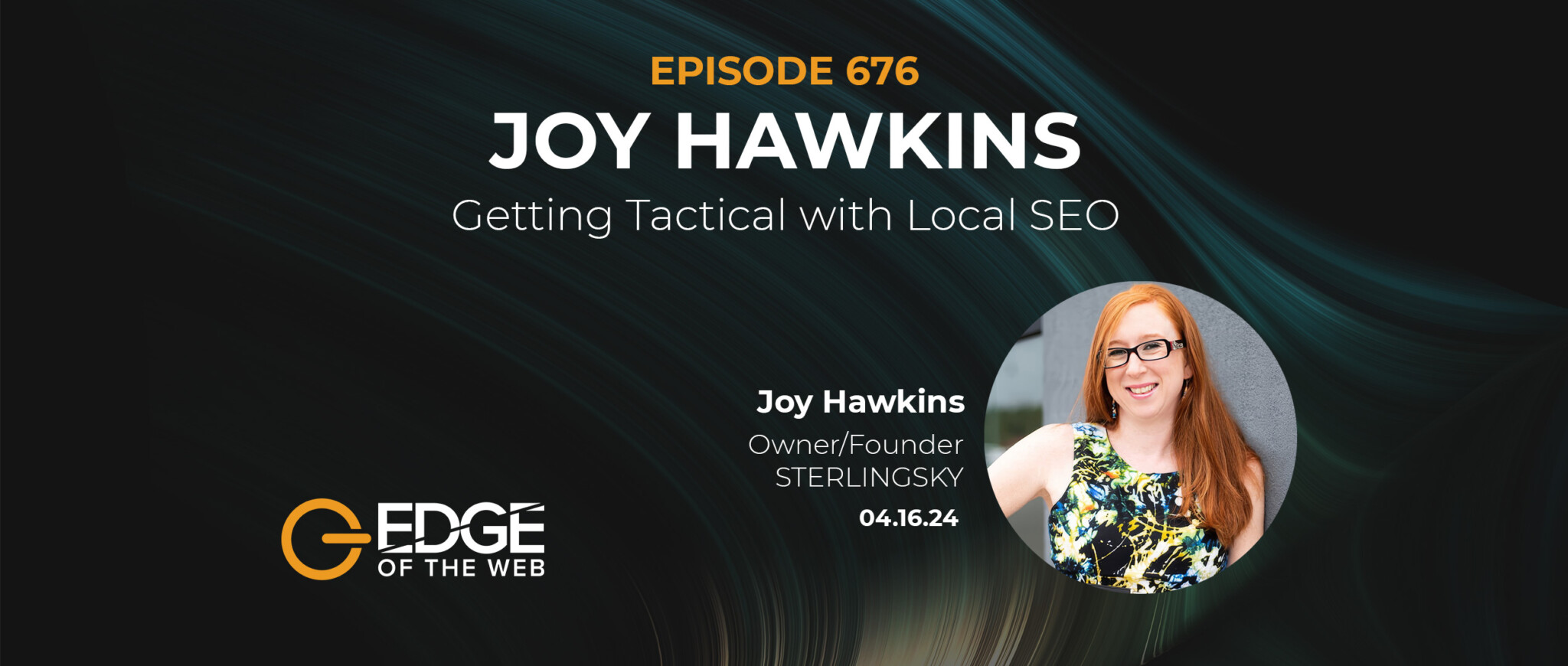Roger Montti shares his perspective on some advancing discussions that SEOs are having. He gives insight into what a day in the life of a tech SEO writer looks like and how he tackles writing for a diverse readership.
- [00:02:41] The Zero-Click Discussion the realm of ideas
- [00:07:57] Google’s meeting 5 user intents at the same time
- [00:12:24] Nostalgia for ten blue links?
- [00:17:30] Ramping the first time SEOs into the conversation going on
- [00:19:59] Rodger’s process of targeted a particular SEO topic
- [00:25:53] High level of scrutiny from the community on what Roger publishes. What are the challenges?
- [00:28:29] Don’t be afraid – put it out there.
Popular Discussions in SEO and A Tech Writer’s Perspective
Montti gives a rundown of what the Zero-Click claims are and how they are affecting the industry. He talks about people’s desire to keep the 10-blue link SERP, but how it may be time to move forward with the times. He gives us some insight into his responsibility as a tech writer, as well as some challenges and tips for those wanting to work their way into the realm of SEO and tech journalism.
Discussing the Zero-Click Claims
Montti wrote an article on Google and the Zero-Click claims. The background of these claims stems from a research study conducted by SparkToro in 2019. The study released data claiming that 50% of Google’s searches do not result in link clicks. More and more consumers are interacting with Google and not clicking on-page links. The study brought forth a substantial discussion that it was used as evidence against Google in Congress, where it was cited as they discussed Google’s influence and monopolization. The spark of this discussion is essential and is about ideas, not people.
The problem was that the data gathered by the SparkToro study was inherently biased, and therefore people discredited it. However, another study came out, which essentially doubled down on the same conclusion that SparkToro’s original study came to. A colleague of Montti’s had conversed with a mathematician who claimed that these studies have so many biases that they are entirely too unreliable. One point is that traffic from Google apps is anonymous and cannot be tallied, so how can the data be reliable?
10-Blue Links: Better for User Intent or Based on Nostalgia?
The underlying issue with assertions in this discussion is that there’s a subtext that Google search should be the 10-blue links that the user can click through. However, there are several different meanings for anyone search phrase. Google is seeing someone search for a phrase or word that could mean something different. Google’s SERP is essentially providing five different users with what they want simultaneously due to a search phrase having five different possible meanings for the user searching. The 10-blue link SERP cannot do that. Montti thinks it’s a good thing that Google is targeting five different user intents simultaneously. This is also educating the user about other doors they can open based on the search phrase.
These significant strides by Google are an attempt to engage the audience and open doors of insight so that Google can learn from the interaction. Google offering up all the different options is attempting to understand and subsequently adjust the SERP for the user. Google is filtering through possible results to offer the user what they want so that there is more of a chance that the user will bring more traffic to the site that offers what exactly the user is looking for.
General nonspecific traffic is not hitting specific sites, but Google is qualifying the consumer more so that they see what they are looking for when they do click on any given site. It raises the question of whether people are just nostalgic for the 10-blue links. People are using the 10-blue links SERP as a baseline when that’s not how things are anymore. Searches are more complicated and more accurate now. Montti thinks Google is doing a good job.
Google Discover and Montti’s Responsibility as a Writer
The user is more technologically savvy than ever before, and Google is responding to that. Google Discover is trying to understand the topics that the user is interested in. It shows relevant content to that topic, whether the page is from three years ago or was just published. Montti sees this as an excellent example of how Google is not trying to hold onto clicks. Google is trying to attract traffic.
As a technology writer, Montti is responsible for giving context to the audience to allow them to understand what is being discussed while bringing a new perspective that is looking at the topic from a larger view. Due to Montti being in the industry for so long, he can get the history of the topic relevant to the discussion. He tries to bring this historical perspective as best as he can while satisfying multiple types of users.
Montti’s Process When Targeting a Topic
Montti approaches a story by first asking these questions: How is this topic useful to a user or business owner? How is the topic going to SEO better? And how will this affect the user? Montti wants people to know what is going on in their backyard within the industry and how it might affect them. When he is writing, Montti tries to think about how the topic is vital to the search community. He must understand all the different users that are going to read the article, especially those who are new to space. Montti avoids dropping terms and acronyms without explaining them at least twice because it’s ultimately beneficial if the reader can follow along.
Challenges a Tech Writer Faces
Montti has learned that writing is all about an exchange of ideas within the industry. Even people who are being nasty are exchanging their concepts. However, he has concluded that there is no argument to be won within the SEO industry. All he can do is throw out his ideas, and then it’s up to the reader and user to decide on their own. If someone dislikes what he is saying, then that’s their choice. That’s how an exchange of ideas works. Montti tries his best to be respectful of people, ideas, and experiences, concluding that there is no reason to be rude. Though people sometimes find him condescending, which he attempts not to be, he knows that is how online discourse is. A writer cannot change how people interpret a tone on their own.
Tips For Those Looking to Break into Tech Journalism
Montti states that if you have these ideas that you think are interesting, just put them out there. Write your blog and start your website. Contribute to online communities and share your thoughts and learn about others. Welcome any challenges and learn from criticism, but don’t let those who come at you nastily bother you. Don’t be afraid to be wrong because you can grow and be better if challenged and learned from it. Be nice and try to cultivate friendships and relationships. Online acquaintances allow you to make relationships that can be beneficial when you attend conferences. It helps to know people in the industry, and it is always good to make new friends.

























